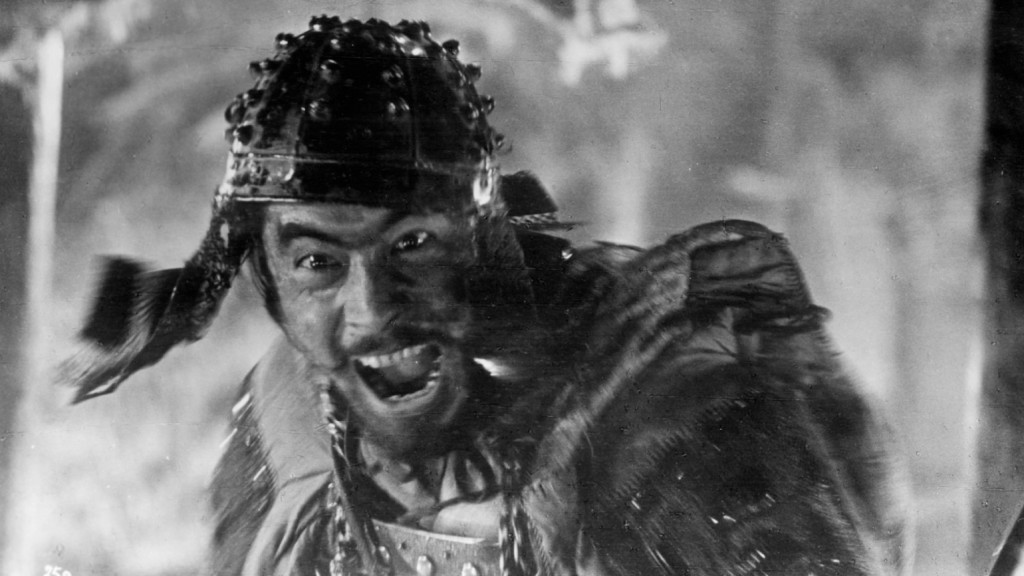
The documentary Mifune: The Last Samurai profiles the iconic Japanese actor Toshiro Mifune. Mifune was director Akira Kurosawa’s essential collaborator and the star of the cinematic masterpieces Rashomon, Seven Samuari and Yojimbo. In those films, along with The Hidden Fortress, Throne of Blood, Sanjuro and Red Beard, Kurosawa and Mifune re-invented and elevated the samurai genre.
The title “Rashomon” has become a noun in every language for the telling and retelling of the same story from different points of view. Seven Samurai was remade as The Magnificent Seven and Yojimbo as A Fist Full of Dollars. (Kurosawa and Mifune also made some brilliant Japanese film noir – The Lower Depths, High and Low, The Bad Sleep Well, Drunken Angel, Stray Dog – that are NOT discussed in Mifune: The Last Samurai.)
What Mifune brought these films was an irreplaceable vitality. One of the great prototypes for “strong and silent” screen actors, his physicality made his characters powerful, even forces of nature.
Director Steven Okazaki wisely makes Mifune: The Last Samurai a “Life and Times” with a survey of Japanese cinema history with importance of period swordfighting movies (called chanbara after the sound of swords). Besides tracing Mifune’s own personal history (he was born and raised in Chine, which I certainly didn’t know), Okazaki explores wartime and postwar Japan society.
Okazaki also brings us witnesses of Mifune’s life, including his son, Kurosawa’s son and many Mifune son and costars. There’s even a sword fight choreographer who played over 100 movie characters killed by Mifune. The talking heads are rounded out with Martin Scorsese and Steven Spielberg.
There are plenty of cool insights like how the dangerous death scene in Throne of Blood (where Mifune is shot by hundreds of arrows) was filmed on the cheap with college student archers – and uninsured!
Despite their long partnership and historic successes, Mifune and Kurosawa never made another movie together after Red Beard in 1965, although the two lived another 32 years. That is addressed, but not answered in Mifune: The Last Samurai; initially, I found that unsatisfying, but now I find it even more interesting that their sons and closest confidantes don’t know the reason.
I recommend Mifune: The Last Samurai for those who are interested in Mifune, Kurosawa or cinema generally.
